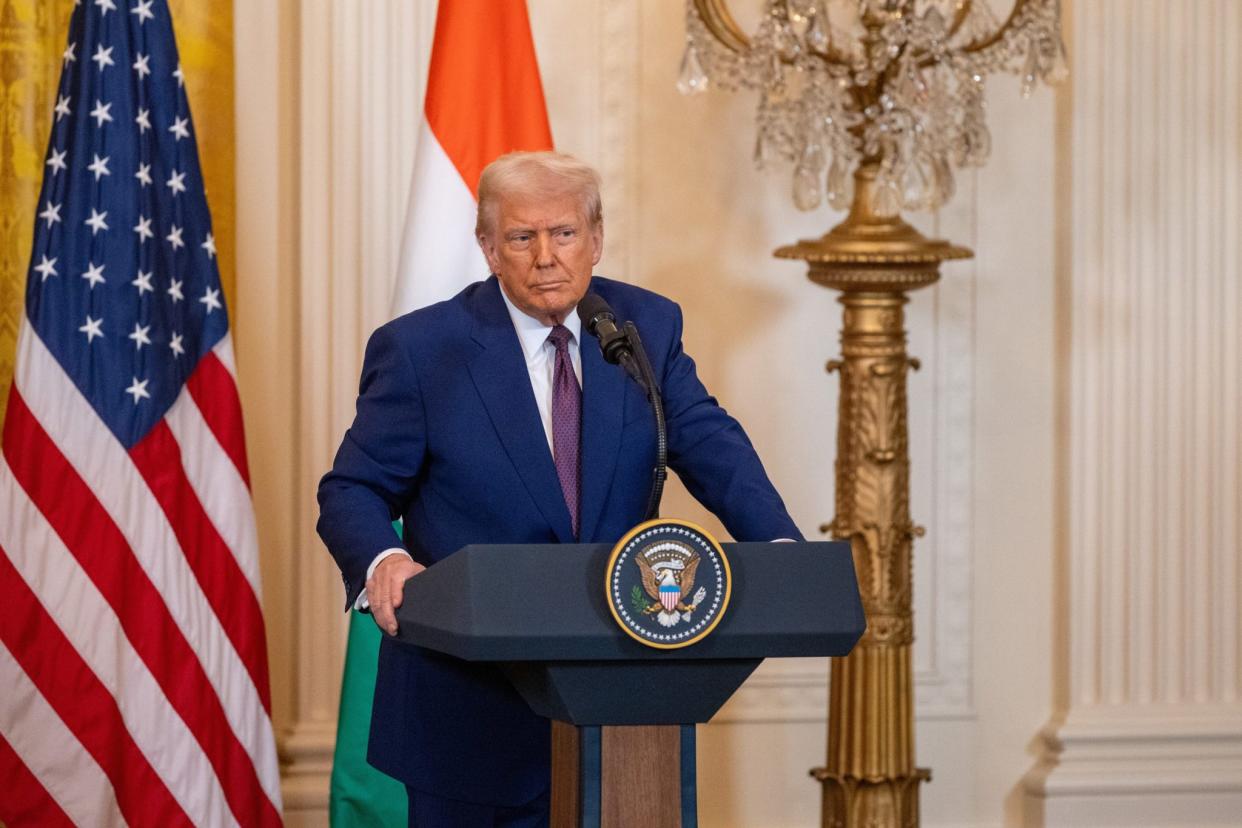Washington, D.C. — The U.S. Department of Justice (DOJ) has announced a major policy shift regarding clemency for individuals involved in the January 6, 2021, attack on the U.S. Capitol. This decision follows former President Donald Trump’s indication that he would consider pardons for those convicted in connection to the riot, should he return to office. At the same time, the DOJ is reassessing its stance on certain federal gun prosecutions, marking a significant shift in legal priorities.
Expanding Clemency for Jan. 6 Defendants
In a statement, the Justice Department revealed that it is broadening the scope of clemency for individuals charged with nonviolent offenses related to the January 6 attack. The move signals a shift in the department’s approach as political debates over the treatment of rioters continue to intensify.
“The department is conducting a thorough review of all cases to ensure that sentencing and prosecution align with constitutional principles and fairness,” a DOJ spokesperson said.
Over 1,200 people have been charged in connection with the riot, with more than 700 already convicted or having pleaded guilty. While many have received prison sentences, some have argued that their involvement was minor or that they were misled into participating. The Justice Department’s latest move could pave the way for reconsidering sentences or even commuting punishments for certain individuals.
The policy shift also raises concerns among legal experts and lawmakers. Some critics argue that broad clemency could undermine the rule of law and diminish accountability for those who stormed the Capitol. Others, however, view the decision as a necessary correction, particularly for those who received harsh penalties compared to defendants in similar cases.
DOJ Reevaluates Federal Gun Cases
In a parallel move, the Justice Department has initiated a review of federal firearms prosecutions, focusing on cases where individuals were charged under laws that may now be subject to reinterpretation. The review follows recent Supreme Court rulings that have challenged the federal government’s authority to impose certain gun restrictions.
One of the most notable cases under reconsideration is the enforcement of laws barring gun possession for nonviolent offenders. Legal experts suggest that the department’s decision aligns with broader constitutional challenges to federal firearms regulations, particularly in light of the Supreme Court’s expanding interpretation of the Second Amendment.
“Recent rulings require us to ensure that we are applying the law in a manner consistent with constitutional protections,” a DOJ official stated.
The decision has already sparked debate among gun control advocates and Second Amendment supporters. Some argue that easing federal gun prosecutions could lead to increased firearm-related crimes, while others claim it corrects governmental overreach that unfairly criminalizes individuals.
Political and Legal Reactions
The DOJ’s policy shift has drawn mixed reactions from lawmakers. Congressional Republicans have largely supported the move, with some seeing it as a step toward correcting perceived injustices in the handling of Jan. 6 defendants and gun owners. Meanwhile, Democrats have expressed concern that it could set a dangerous precedent by excusing violent political actions and weakening gun control measures.
Civil rights groups have also weighed in, with some applauding the Justice Department’s decision to reconsider cases that may have involved excessive sentencing. Others, however, worry that broad clemency could embolden extremist groups and encourage future acts of political violence.
Legal analysts note that while clemency does not equate to exoneration, it signals a shift in how the federal government views accountability for past actions. Similarly, the reevaluation of gun cases suggests that the DOJ is adapting to the evolving judicial landscape regarding Second Amendment rights.
Implications for Future Justice Policies
The DOJ’s move is expected to have lasting implications for federal law enforcement priorities. It signals a possible shift away from aggressive prosecution in politically sensitive cases and a more restrained approach to firearm regulations.
Observers are closely watching how these decisions will influence future administrations. If Trump or another Republican candidate wins the presidency in 2024, there could be further shifts in federal prosecution strategies, including potential blanket pardons for remaining Jan. 6 defendants.
At the same time, changes in federal gun prosecutions could reshape legal battles over the Second Amendment, with potential ripple effects on state-level firearm laws.
Conclusion
As the Justice Department broadens its clemency efforts and reconsiders federal gun cases, the political and legal landscape continues to shift. While supporters view these decisions as a correction of legal overreach, critics warn of potential consequences for democracy and public safety.
With the 2024 election cycle heating up, the implications of these moves could extend far beyond the courtroom, shaping the future of American law and governance.
Disclaimer – Our team has carefully fact-checked this article to make sure it’s accurate and free from any misinformation. We’re dedicated to keeping our content honest and reliable for our readers.




